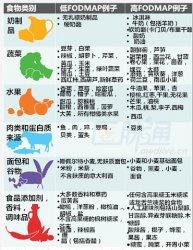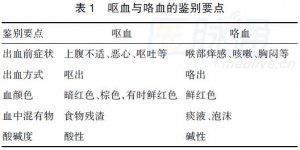AJPGLP:科学家揭示炎性肠病发病机制新见解
近日,来自兰卡斯特大学的研究人员通过研究表示,炎性肠病(IBD)的发生或许会受到肠道中引发炎症的特殊蛋白的影响,相关研究发表于国际杂志AJP: Gastrointestinal and Liver Physiology上。
在英国高达百分之一的人群都会在其一生中患炎性肠病,包括克罗恩病和溃疡性结肠炎,炎性肠病在英国影响着26万人的健康。而患者机体中小肠粘膜的修复主要依赖于肠道中细菌之间的相互作用。Rachael Rigby教授表示,为何炎性肠病患者在发达国家不断增长,这其中潜在的原因就包括患者肠道中定居的微生物的改变等原因。
肠道中微生物群落的改变往往会影响患者肠道粘膜的修复,而肠道粘膜为个体机体抵御感染性制剂树起了一道有力的防线;整个肠道都由单一的上皮细胞层所覆盖,而上皮细胞会因个体患炎性肠病而发炎以至于被破坏。文章中研究者调查了一种名为SOCS3的特殊蛋白在炎性肠病发病过程中所扮演的重要角色。
研究者Rigby说道,SOCS3蛋白可以限制个体肠道的炎性表现,但其在炎性肠病患者机体中水平的增加却对机体肠道粘膜的修复会带来负面作用;本文研究发现SOCS3可以限制微生物所诱导的肠道上皮细胞伤口的愈合。相关研究结果为进一步揭示SOCS3在机体肠道健康中所扮演的重要角色提供了一定的线索,同时在炎性肠病患者机体中SOCS3蛋白表达的增加同样也会引发长期的炎性表现。
PMC:
PMID:
Intestinal epithelial suppressor of cytokine signaling 3 enhances microbial-induced inflammatory tumor necrosis factor-α, contributing to epithelial barrier dysfunctionImtiyaz Thagia , Elisabeth J. Shaw , Emily Smith , Kathryn J. Else , Rachael J. RigbyA single layer of intestinal epithelial cells (IEC) lines the entire gastrointestinal tract and provides the first line of defense and barrier against an abundance of microbial stimuli. IEC homeostasis and repair are mediated through microbe-sensing Toll-like receptor (TLR)-induced inflammatory pathways. Increasing evidence supports a role of suppressor of cytokine signaling 3 (SOCS3) as a modulator of IEC turnover, balancing controlled repair and replenishment with excessive IEC proliferation predisposing to dysplasia and cancer. Our data indicate that SOCS3 can limit microbial-induced IEC repair, potentially through promoting tumor necrosis factor-α (TNF-α) and limiting TNFR2 expression. Activation of TLR5 signaling pathways, compared with other TLR, increases TNF-α mRNA in a dose-dependent manner and SOCS3 enhances TLR5-induced TNF-α。 We also show that flagellin promotes transc**tion of TNFR2 and that SOCS3 limits this expression, presenting a mechanism of SOCS3 action. Our data also support the role of microbial ligands in epithelial wound healing and suggest that a functional consequence of increased TNF-α is reduced wound healing. These results provide further evidence to support the regulatory role of epithelial SOCS3 in intestinal health and suggest that the increased expression of SOCS3 observed in IBD may serve to perpetuate “inflammation” by promoting TNF-α production and limiting epithelial repair in response to commensal microflora.
本站所注明来源为"爱爱医"的文章,版权归作者与本站共同所有,非经授权不得转载。
本站所有转载文章系出于传递更多信息之目的,且明确注明来源和作者,不希望被转载的媒体或个人可与我们
联系zlzs@120.net,我们将立即进行删除处理


